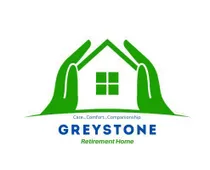
Why are monthly health assessments Matter More Than a Single Annual Visit
Finding the right place for a loved one can feel overwhelming — and many families begin their search by typing senior living near me into a search bar. That search often leads to clinics, retirement communities, and care teams that promise attentive care. But what happens after the initial welcome, the intake forms, and the meeting with your parent’s primary care physician? Can a single doctor’s appointment capture the small, slow changes that quietly become dangerous? At Greystone, we believe routine monthly health assessments — combined with coordinated care — are one of the best ways to spot trouble early and act quickly.
Primary care appointments are essential, but they’re usually episodic: an annual physical, visits for acute problems, and referrals when something obvious appears. Aging, however, is often a slow, cumulative process. A small weight loss month after month, a medication that gradually causes daytime drowsiness, or increasing nighttime confusion are rarely visible in a single snapshot. That’s the gap monthly assessments are designed to fill.
The blind spots in standard primary care
Primary care physicians do incredible work, yet the way care is commonly delivered can miss gradual functional declines and social problems that evolve between visits. Monthly assessments are not meant to replace doctors — they’re meant to complement them by providing trend data that prompts timely action.
What monthly health assessments look for
A focused monthly review typically covers domains that predict safe independence and quality of life:
- Functional mobility: gait speed, balance, and fall risk
- Nutrition: weight trends, appetite, swallowing difficulties
- Cognitive shifts: orientation, memory patterns, subtle confusion
- Medication review: polypharmacy risks, side effects, adherence
- Mood and social engagement: depression screens, isolation indicators
- Skin checks, hydration status, and bowel/bladder changes
These are simple checks, but when performed consistently they detect patterns that a single annual visit often misses. Minor weight loss over three months, an incremental slowing of gait, or the subtle onset of nighttime confusion are early warning signals — and monthly assessments flag them early.
How coordinated care turns data into action
Collecting data is useful only if the care team acts on it. A monthly health assessment is most powerful when it’s part of a coordinated care plan: the assessment triggers timely communication with the primary care physician, pharmacists, physical therapists, dietitians and family members. That coordination is one of Greystone’s strengths: tailored care plans and staff who work with outside medical providers to keep families informed and intervene earlier when trends appear.
Real-world examples where monthly checks make a difference
Consider three common scenarios:
- Slow weight loss — Mrs. Singh loses two pounds each month for three months. A monthly nutrition screen flags the trend; a staff assessment finds poorly fitting dentures. A dental referral and meal adjustments reverse the decline.
- Medication side effect — Mr. Alvarez is increasingly sleepy in the afternoons. A monthly medication review shows a nighttime sedative now causes daytime disorientation. Adjusting the prescription reduces falls risk.
- Acute confusion with an underlying cause — Mrs. Thompson shows subtle nighttime confusion. Monthly cognitive checks identify a pattern of sundowning; staff coordinate with her physician and discover a urinary tract infection — a treatable cause of acute confusion.
Each scenario shows how monthly, targeted checks spot cumulative changes and prompt timely, often simple solutions.
Why families notice better outcomes
Families frequently report fewer emergency room trips and hospitalizations when routine monitoring and coordinated care are in place. That’s because small deviations are managed before they escalate into crises. Greystone emphasizes individualized care plans, compassionate trained staff, and close attention to daily needs — themes families repeatedly point to when searching for the right care.
Monthly health assessments and medication safety
Polypharmacy is common among older adults and a leading source of preventable harm. Monthly reviews look for drug–drug interactions, medications that cause dizziness or low blood pressure, and unnecessary sedatives. By catching these issues early, the care team can work with physicians and pharmacists to simplify regimens and reduce risk.
The social and nutritional lens: problems doctors rarely see
Primary care appointments often focus on the medical problem presented in the moment, but social determinants — loneliness, inability to prepare meals, and access to fresh food — directly affect health. In a residential care setting, daily observation can detect social withdrawal or missed meals long before those problems surface at a doctor’s visit. Greystone’s tailored care plans, engaging activities and dining services help keep residents socially connected and nutritionally supported.
Where retirement homes fit into the picture
When families research options, the phrase old age care home often comes up. High-quality residential care settings provide ongoing observation that supports monthly assessments — staff who know residents’ routines, nutrition teams who monitor intake, and caregivers who notice subtle shifts in health or behavior. These settings complement physician care by supplying continuous observational data that can be invaluable for early detection and timely intervention.
In many communities, an old age care home provides the practical environment (daily meals, social engagement, on-site observation) needed to make monthly health assessments both possible and meaningful. The facility’s daily rhythms create opportunities to spot trends: skipped meals, new difficulties with dressing, or small but persistent mobility changes.
Building a monthly health assessments program: practical steps
If you’re evaluating a provider or asking your parent’s current facility about monthly assessments, here’s a checklist:
- Is there a standardized monthly assessment form tracking weight, mobility, cognition, mood, and medications?
- Are assessment results shared promptly with the primary care physician and family?
- Is there an escalation protocol (rapid medication review, urgent MD visit, or therapy referral)?
- Are staff trained to recognize early geriatric syndromes and to communicate changes clearly?
- Is there support for social engagement and nutrition monitoring?
Greystone’s staff are trained to provide tailored care plans and to maintain communication with families and outside medical providers. That collaborative approach is core to preventing avoidable decline.
The human side: peace of mind through consistency
Beyond statistics and checklists, monthly assessments create predictability. Families sleep better knowing a consistent, compassionate team is watching for small changes. Residents benefit from routines and timely tweaks that preserve dignity and independence. Greystone emphasizes compassionate, trained staff, tailored plans and engaging activities — features that matter when families look for high-quality care.
Is one monthly assessment enough?
A single monthly assessment isn’t a magic bullet; it’s one part of a broader system that includes good communication pathways, rapid response options, and ongoing family involvement. The strength of monthly checks is in regularity and in acting on the findings: these assessments are a safety net that often catches issues an annual checkup misses.
Final thoughts: choosing a partner in care
If you’ve found yourself searching senior living near me and weighing options, consider how each community structures routine monitoring and coordination with healthcare providers. Look for settings that offer tailored care, trained and compassionate staff, and clear communication with families and physicians.
At Greystone Retirement Home, we are licensed as a residential care home in Connecticut, offer private or shared rooms with assistance for activities of daily living, maintain tailored care plans, and pride ourselves on compassionate, trained staff and close family communication. We also provide low daily/monthly rates and encourage families to reach out to learn how we coordinate care for every resident.
Choosing the right setting is personal — whether you prioritize medical oversight, social life, or affordability, search results for senior living near me can help you compare options locally and find a community aligned with your family’s needs. At Greystone, we welcome questions and tours to show how monthly assessments fit into daily life and peace of mind.
Visit our website or call us at 860-342-2509 to discuss how we support residents with dignity, comfort, and companionship.
